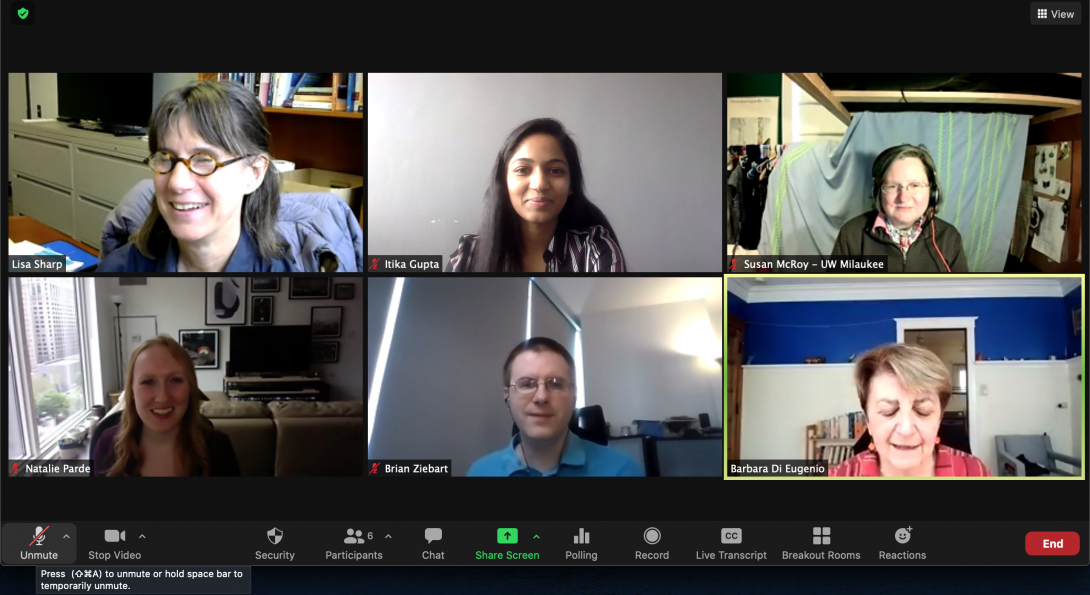Itika Gupta defends her PhD thesis

Introduction
On April 14, 2021, Itika Gupta successfully defended her PhD thesis (over Zoom) entitled: "Modeling Health Coaching Dialogues for Extracting Behavioral Goals".
Her committee included: Barbara Di Eugenio (advisor; CS, UIC), Brian D. Ziebart (CS, UIC), Natalie Parde (CS, UIC), Lisa K. Sharp (Pharmacy Systems, Outcomes and Policy, UIC), and Susan McRoy (CS, University of Wisconsin-Milwaukee).
Abstract:
Health coaching has been identified as a successful method for motivating and maintaining health behavior changes. Unfortunately, personal health coaching is time- and resource-intensive, and cannot scale up. Previous research focuses on developing conversational systems that can provide automated coaching to patients. But most of these systems rely on a predefined set of input/output mappings, focus more on general goal setting, and do not provide follow-up during goal implementation. Therefore, my research contributes to building a virtual assistant health coach to help patients set and achieve a Specific, Measurable, Attainable, Realistic, and Time-bound (SMART) goal.
The first step towards building a successful domain-specific dialogue system is to understand the users' needs and the environment in which it will be used. Since no other public health coaching dialogue data exists, we collected data that I annotated for a variety of features of interest. These annotations include domain-specific slots called SMART attributes at the word level, the intent behind a participant’s text message called dialogue acts, and higher-level portions of the dialogue performing a specific function called stages and phases. I then used these annotations to build the language understanding component of the dialogue system and design the goal extraction pipeline, which extracts the physical activity goal the user and coach negotiate via text messages. I proposed a two-step goal extraction process that uses phases and dialogue acts to identify the correct goal attributes and show that dialogue acts help more than the higher-level conversation flow captured by phases. These goal summaries will help the health coaches to easily recall patients' past goals and use them to suggest a realistic future goal. Finally, I assessed the usability of the generated goal summaries with the help of three health coaches in an offline setting.